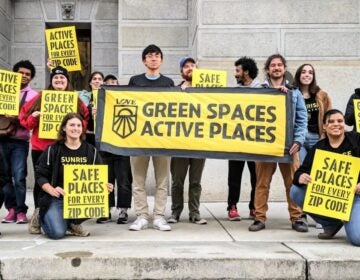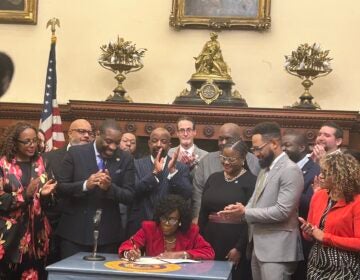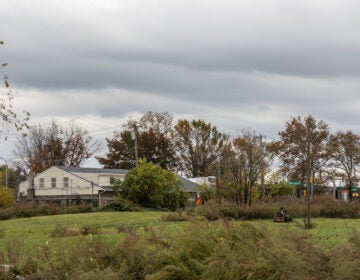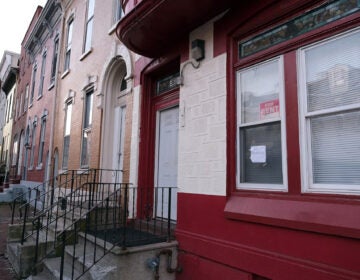‘We’re here to start a conversation’: Philly gardeners talk land security with Cherelle Parker ahead of election
The group of gardeners and advocates hopes to hold a similar conversation with Republican mayoral candidate David Oh.
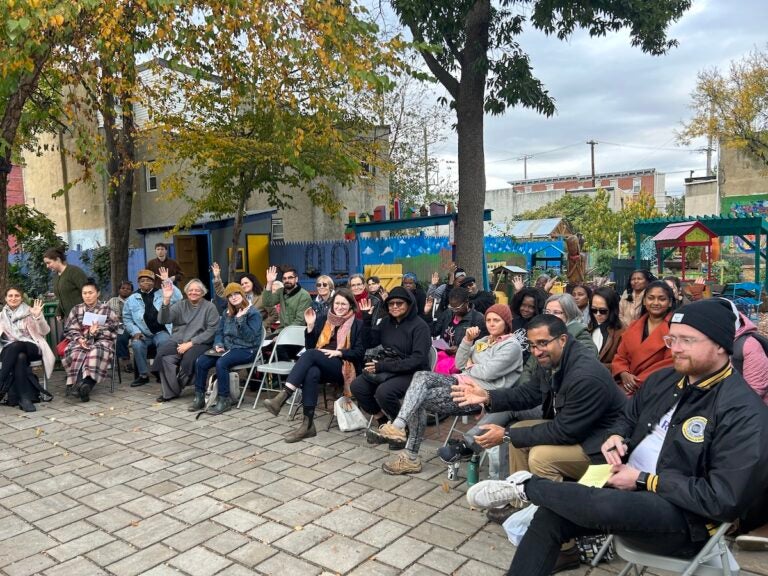
Gardeners and advocates listen to a round table discussion on the issues facing community gardens with mayoral candidate Cherelle Parker. (Sophia Schmidt/WHYY)
What questions do you have about the 2023 elections? What major issues do you want candidates to address? Let us know.
Philadelphia community gardeners want the city’s next mayor to help them secure access to the land they steward.
A group of gardeners and advocates met with Democratic mayoral candidate Cherelle Parker at the Las Parcelas Community Garden in North Philly Tuesday to discuss the forces they say threaten community gardens in neighborhoods throughout the city.
“With the help of politicians, the new mayor, those things hopefully will be corrected,” said Elizabeth Waring, manager of the Holly Street Neighbors Community Garden in West Philadelphia, which operates on land that’s not entirely owned by the gardeners. “The threat is still there of losing that garden space … But fortunately we are going to keep going with the hope that all of these issues concerning the green spaces and gardens will be … turned around.”
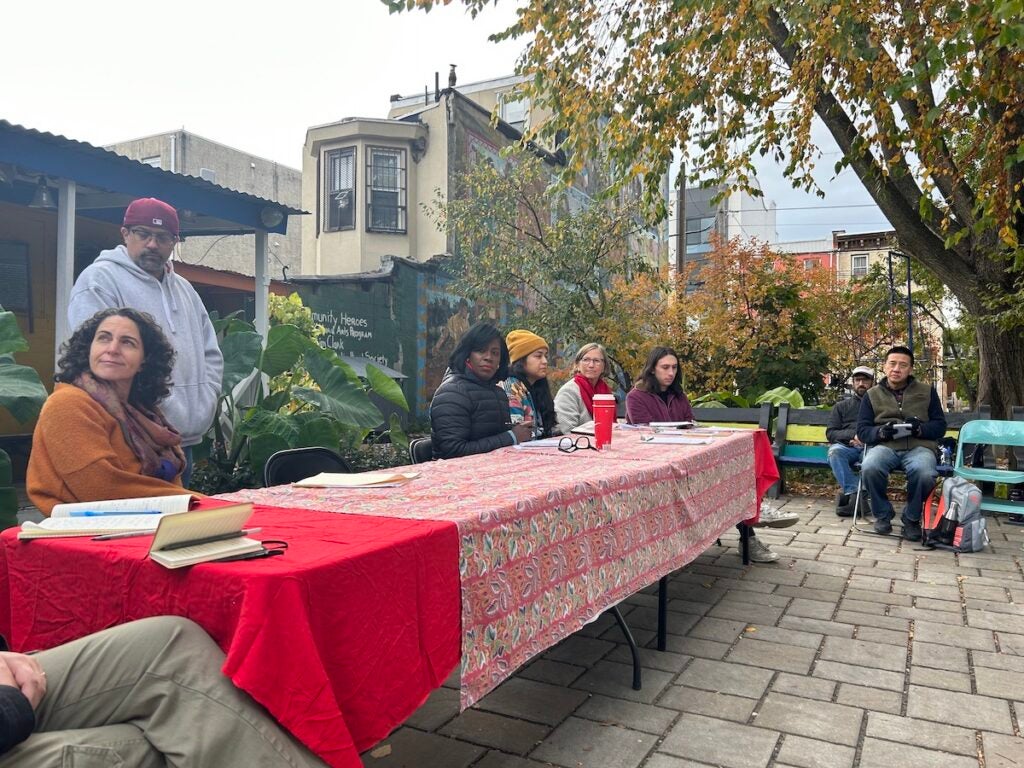
Fewer than half of the city’s community gardens are considered secure, meaning they’re owned entirely by the people who steward them or an organization these gardeners trust to preserve the land long term, according to the Urban Agriculture Plan the city released earlier this year.
The group of gardeners and advocates who met with Parker Tuesday hopes to meet with Republican mayoral candidate David Oh as well, said Public Interest Law Center Environmental Justice Organizer Ryan Gittler-Muñiz.
Gardeners cite development pressure as a threat to many vacant lots where food is grown. In 2020, planners, farmers, and organizers estimated that one in three of Philly’s farms and gardens were in areas of the city with a high intensity of new construction.
Mara Henao, an organizer with the César Andreu Iglesias Community Garden in North Philly, told Parker Tuesday that “rampant” development has created a crisis not only for gardens, but for people who steward vacant side yards as recreational space.
“How about all the little side yards and people who don’t have the access to the resources to become an LLC or whatever — what happens to their culture, to their labor that they have put on these little yards for the past 30 years?” she said. “This is part of Philadelphia culture.”
Parker affirmed the importance of gardens and preserved greenspace in the city.
“I see you,” she told the gardeners and advocates. “I hear you. I know the work that you’re doing. I know what’s important to you.”
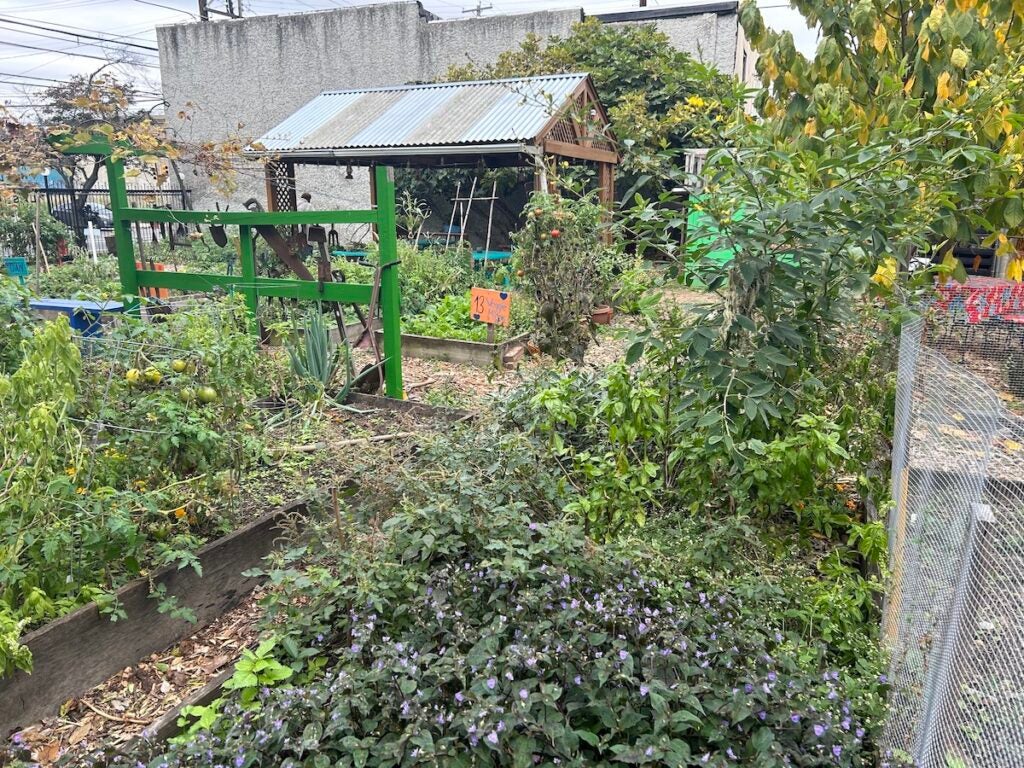
This year gardeners and organizers successfully pushed the city to buy back close to 100 liens on lots used as community gardens — mainly in West, Southwest, and North Philly — which had been sold to a private lien-holder more than two decades ago. Gardeners cheered the buyback, because it meant the city regained control over whether and when the properties go to the sheriff’s sale. But Gittler-Muñiz, of the Public Interest Law Center, said the path for transferring the properties to gardeners is still being worked out.
Gardeners and advocates told Parker Tuesday about a Philadelphia Land Bank practice they say creates an unnecessary hurdle for gardeners trying to acquire vacant land.
The city’s Land Bank can transfer lots used as gardens to community groups and nonprofits at a discount. But the agency has recently required many of these groups to sign 30-year self-amortizing mortgages.
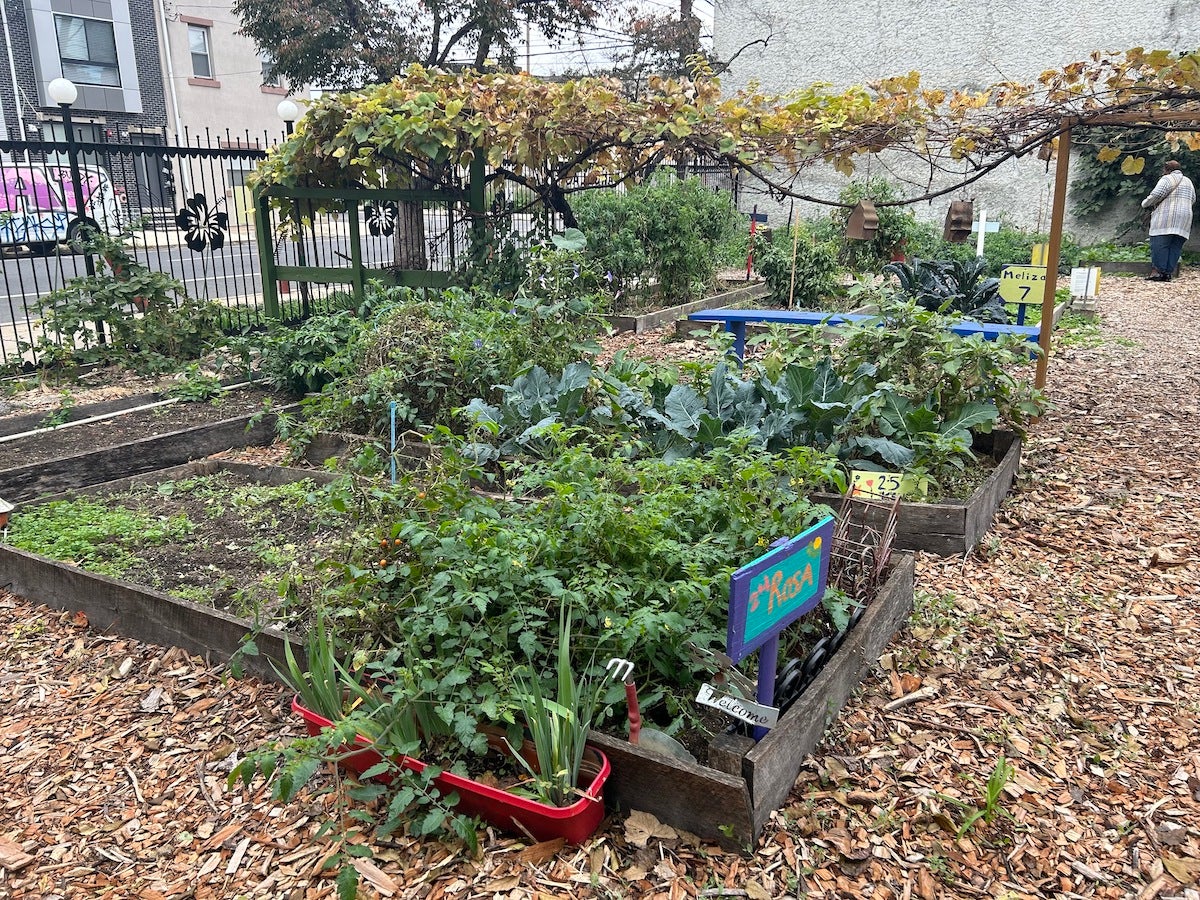
Although these mortgages automatically reduce to zero by the end of their terms, gardeners and advocates say they create unnecessary financial complexity for small organizations, leaving them with large liabilities on their balance sheets and a risk that the Land Bank could take the land back. Land Bank staff have said the mortgages help prevent the properties from being flipped for development.
“The premise of the mortgage is basically distrust, and it discounts decades of hard work invested by residents to maintain lots when the city failed to do so,” Jenny Greenberg, director of Neighborhood Gardens Trust, a land trust dedicated to preserving community gardens, told Parker Tuesday.
Urban Creators, which operates Life Do Grow Farm in North Philly, was one of 30 gardens and organizations that signed onto a letter this spring opposing the 30-year mortgage requirement. Co-director Joshua Warner said the Life Do Grow Farm operates off-the-grid, with solar panels and captured rainwater, and teaches the principle of “self-sovereignty.”
“The Land Bank and how it has treated us — it just needs to change,” Warner said. “We’re here to start a conversation with whomever is in charge of the next administration.”
Parker did not commit to any specific policy changes or investments in garden preservation Tuesday, but said she would convene all the relevant stakeholders and city agencies to come up with solutions.
“If I get the opportunity to lead this city, I’m going to ask you to come in the room,” she said. “I’m going to ask you to leave your bullhorns outside. I’m going to ask you to come with some very specific recommendations.”
A spokesperson for Oh’s campaign said in a statement that if elected, Oh would carefully evaluate any plan to transfer ownership of the lots affected by the lien buy-back to gardeners or land trusts — as well as any proposed development on lots used as community gardens, to weigh the benefits and adverse impacts. He would also review the Land Bank’s disposition process for community gardens and look to streamline the process, the spokesperson said.
Parker and Oh will face off during Pennsylvania’s general election on Tuesday, Nov. 7.

Get daily updates from WHYY News!
WHYY is your source for fact-based, in-depth journalism and information. As a nonprofit organization, we rely on financial support from readers like you. Please give today.




